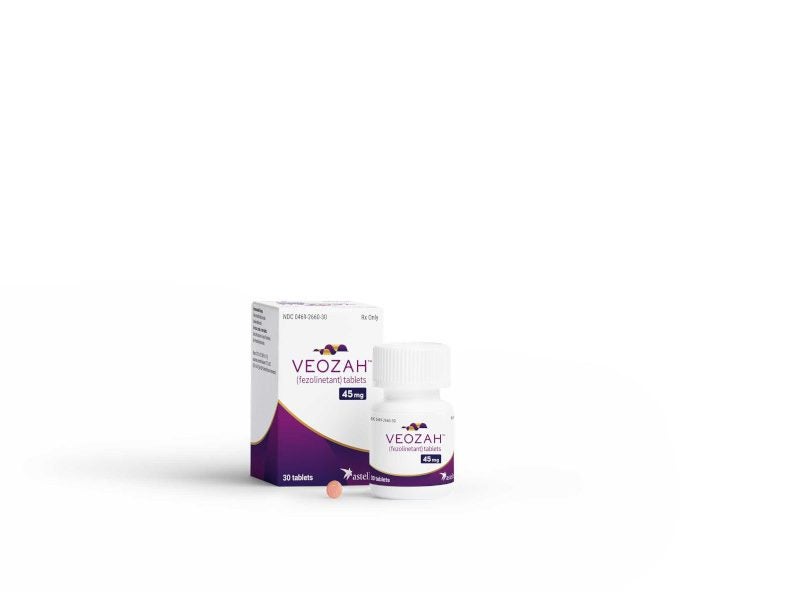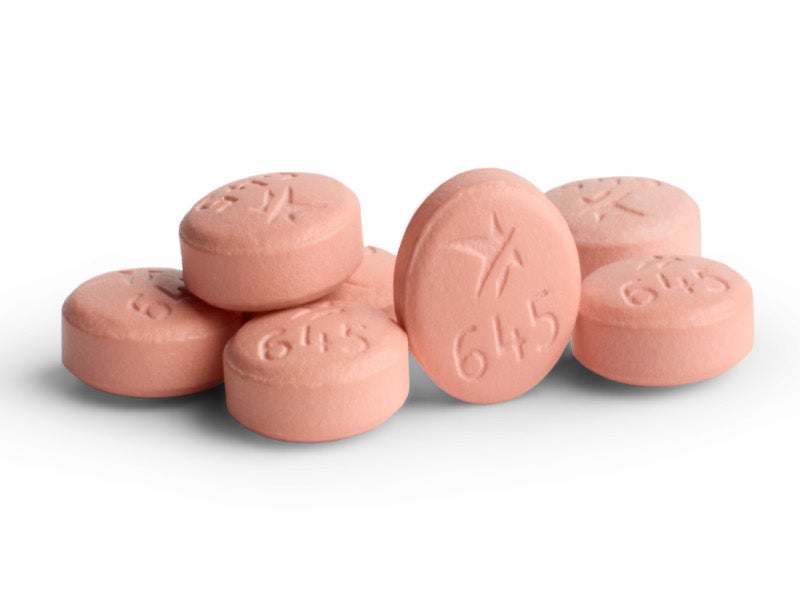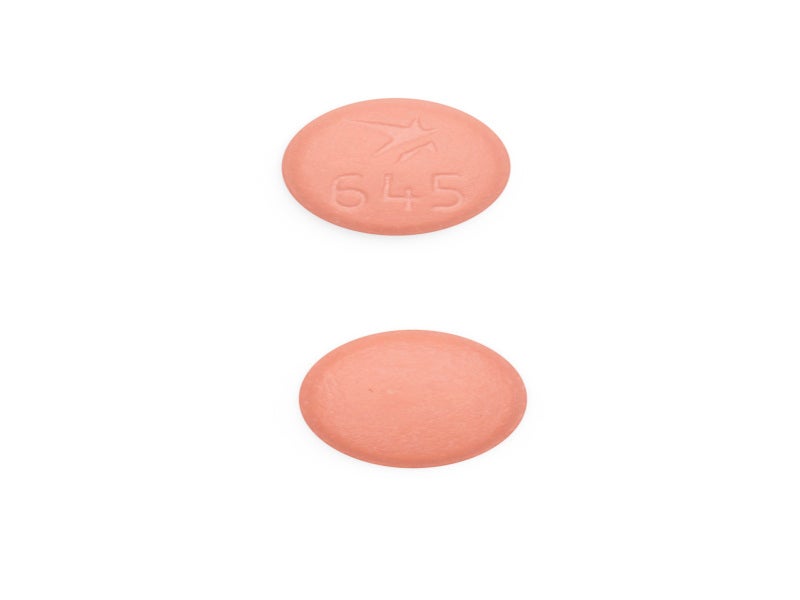VEOZAH™ (fezolinetant) is the first non-hormonal neurokinin 3 (NK3) receptor antagonist approved for the treatment of moderate to severe vasomotor symptoms (VMS) caused by menopause. It was developed by Astellas Pharma, a pharmaceutical company based in Japan.
VEOZAH is available as a round, light red coloured, film-coated oral once-daily tablet in a 45mg strength.
Regulatory approvals for VEOZAH
Astellas Pharma submitted a new drug application (NDA) for fezolinetant to the US Food and Drug Administration (FDA) in June 2022. The NDA was accepted for further evaluation in August 2022.
The FDA approved VEOZAH for the treatment of moderate to severe vasomotor symptoms or hot flashes caused by menopause in May 2023.
The drug is under regulatory review in the European Union (EU), Switzerland and Australia.
Menopause and vasomotor symptoms (VMS)
The balance between oestrogens and neurokinin B (NKB) regulates the body’s temperature control centre. It is disrupted due to menopause and the related hormonal changes, which interfere with the processes that regulate blood pressure and temperature leading to VMS.
VMS is characterised by hot flashes, night-time sweats, heart palpitations, and blood pressure abnormalities. The predominant vasomotor symptom is hot flashes, which affect the chest, neck, and face.
VEOZAH’s mechanism of action
VEOZAH’s active substance fezolinetant is a neurokinin 3 (NK3) receptor antagonist that acts by blocking neurokinin B (NKB) from binding to the kisspeptin/neurokinin B/dynorphin (KNDy) neuron.
Fezolinetant has a high affinity to the NK3 receptor, which is more than 450 times higher than the affinity to the NK1 or NK2 receptors. It modulates neuronal activity in the hypothalamus, reducing the frequency and severity of moderate to severe VMS caused by menopause.
Clinical trials on VEOZAH
The approval of fezolinetant is based on the results of three Phase Ⅲ clinical trials including Skylight 1™, Skylight 2™ and Skylight 4™ conducted across 180 sites in the US, Canada and Europe.
The Skylight 1 and Skylight 2 double-blind trials were conducted with more than 1,000 women suffering from moderate to severe VMS. The studies evaluated the safety and efficacy of 30mg and 45mg fezolinetant with placebo. Fezolinetant was administered once daily for 12 weeks, followed by 40-week active therapy extensions.
The co-primary endpoints of the trials were the reduction in mean frequency and severity of moderate to severe VMS, compared to placebo. The results of the trials showed that fezolinetant 30mg demonstrated a reduction in mean frequency with a mean change of -1.82 and -1.86 per day respectively at weeks four and 12 while fezolinetant 45mg showed a mean change of -2.55 and -2.53 per day respectively at weeks four and 12, compared to placebo.
The trials also showed a reduction in the mean severity of moderate to severe VMS compared to placebo. Fezolinetant 30mg demonstrated a mean change of -0.15 and -0.16 per day at weeks 4 and 12, respectively. The 45mg dose of fezolinetant showed a mean change of -0.29 in severity per day compared to placebo at weeks 4 and 12.
The Skylight 4 randomised, placebo-controlled, double-blind clinical trial was conducted with more than 1,800 women with VMS to investigate the long-term safety and tolerability profile of fezolinetant.
The primary endpoint of the study was to assess endometrial health while the secondary endpoint was mean change from baseline to 12 weeks. The study results indicated that endometrial hyperplasia and endometrial malignancy were within pre-specified limits for patients administered with fezolinetant.
The most prevalent adverse effects reported in the trials were abdominal pain, diarrhoea, insomnia, back pain, hot flush, and hepatic transaminase elevation.





